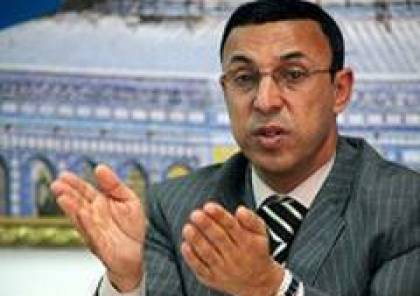Gaza war: Netanyahu and Trump’s agendas
Al-Khamisa News Network - Gaza

Author: Ashraf Al-Ajrami
Amid a rift between the political leadership and the security establishment, Israel has begun calling up 60,000 reservists and officers in the Israel Defense Forces to carry out a plan to occupy the entire city of Gaza. The disagreement appears to have intensified between Prime Minister Benjamin Netanyahu and the heads of the security agencies, led by Chief of Staff Eyal Zamir, Mossad chief David Barnea and the acting head of the Shin Bet, over a prisoner-exchange deal. Most security officials favor a partial deal put forward by mediators — a proposal Israel previously accepted — while Netanyahu rejects that deal and insists on a comprehensive exchange that would free all remaining Israeli captives in Gaza and halt the war on Israeli terms. That has not stopped Netanyahu from moving forward with his decision to pursue a full occupation of Gaza and to destroy it above and below ground.
The divergence over occupying Gaza is pragmatic rather than ideological. Security officials fear for the lives of those held in Gaza and do not expect the operation to succeed within the short timeframe allotted — several months, perhaps until the end of the year. Security estimates indicate an occupation of Gaza could take a year and could result in around 100 Israeli soldiers being killed. Many do not believe Israel has that time internationally, amid growing global criticism that has reached the point of sanctions on Israeli figures and on arms supplies and even trade with Israel. Belgium’s evolving stance is an example: announcing intentions to recognize the State of Palestine, declaring ministers Itamar Ben-Gvir and Bezalel Smotrich persona non grata, banning imports of settlement products, restricting Belgian government purchases from Israeli companies, imposing sanctions on settlers, and other punitive measures. Netanyahu, by contrast, claims the U.S. president supports rejecting a partial deal in favor of decisively defeating Hamas and making a comprehensive deal to end the war as quickly as possible.
It is true that Donald Trump backs a decisive victory in the war, the destruction of Hamas and the release of the captives in one go; but he also says the war harms Israel, which is beginning to lose support in the U.S. Congress, and damages its image. For that reason he is interested in ending it quickly. Trump may not pressure Netanyahu to halt the current military operation to occupy Gaza, but he likely does not want the war to drag on because of the major changes taking place globally and even among the American public, which recent polls indicate has largely begun to oppose Israeli policy and the campaign of annihilation being waged against the Palestinian people in Gaza. It is unclear whether Trump will clash with Netanyahu; he is the sort of leader who can change position overnight. He may lose interest in the file if he feels no accomplishment can be claimed. He still juggles the Ukraine war file and the Gaza war file to see which is closer to yielding a breakthrough, and he might shift focus to Syria or another issue.
Any dispute between Netanyahu and Trump is unlikely to lead to harsh stances against Israel; both support the displacement of Palestinians from Gaza and transforming it into the “Riviera” of the Middle East — an important commercial and investment hub. The disagreement is tactical only. Trump is impatient to see results, while Netanyahu is trying to buy time for personal reasons related to next year’s elections and his criminal cases. Ultimately, the party that can change these plans and affect the reality in Gaza is not Israel alone but also Hamas, if it uses wisdom and thwarts Netanyahu’s schemes.
Hamas could say: we showed flexibility and agreed to Steve Witkoff’s proposal for a partial prisoner-exchange, but Netanyahu backed away from it, so no one can blame us for what happened. In reality, the movement can make a decisive contribution to stopping the war and blocking Netanyahu’s plans — not only the destruction of Gaza but also implementation of settlement and annexation projects in the West Bank. The only way to begin preventing that is to stop the war on Gaza. Here lies the importance of responding to Arab and international positions: agreeing to international conditions for a comprehensive prisoner-exchange, permanently relinquishing rule over Gaza, surrendering weapons to an Arab party or the Palestinian Authority, moving to cease hostilities and implementing the Arab plan for Gaza’s day after — saving Gaza from destruction and sparing our people daily killings and annihilation. Hamas alone can change the course of the war in the absence of real international pressure on Israel to end the fighting and stop the crimes in Gaza. Will the movement put the national interest above petty selfish calculations?



